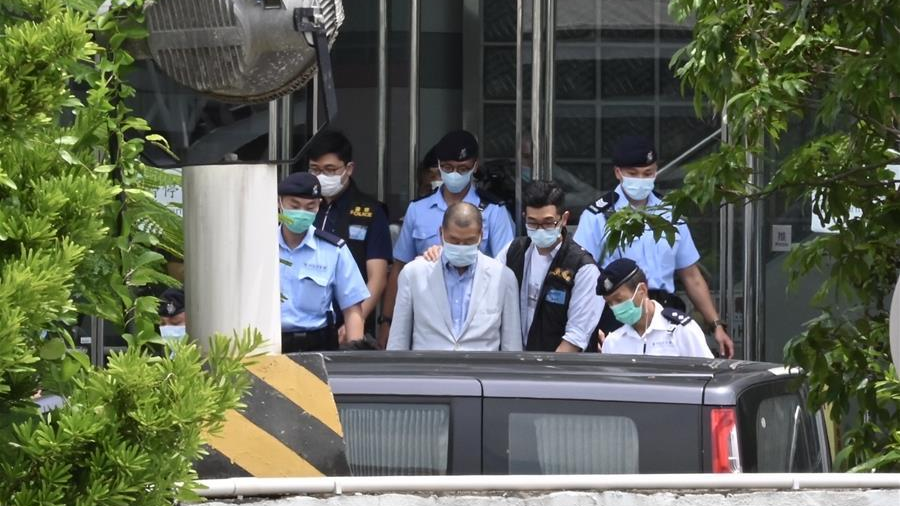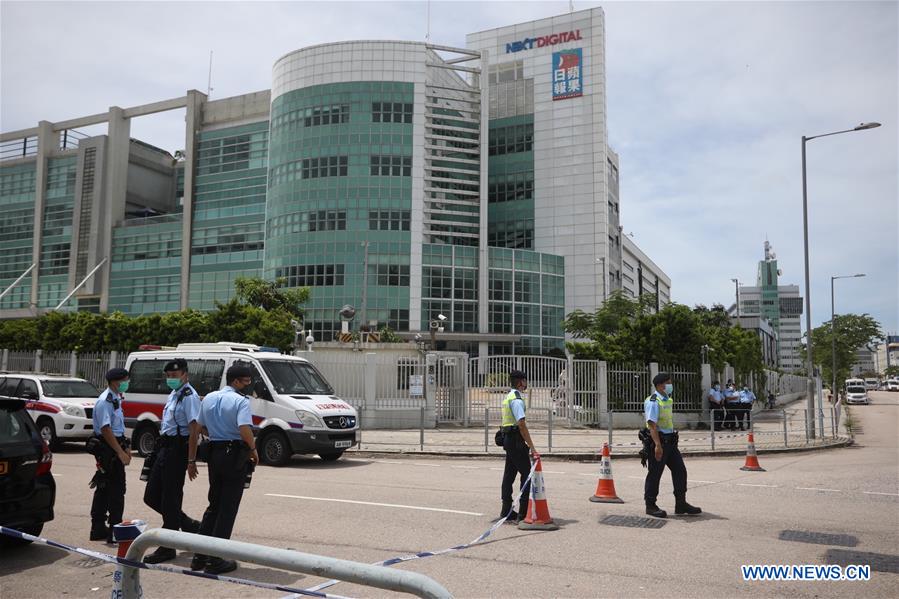00:37

Editor's Note: Stephen Ndegwa is a Nairobi-based communications consultant and international affairs columnist. The article reflects the author's opinions, and not necessarily the views of CGTN.
The headlines of the Western-bent international media following the arrest of Hong Kong media mogul Jimmy Lai on August 10 did not disappoint.
The majority of Western media houses were all about how the arrest of Lai was yet again testament to the suppression of democracy, media freedom and human rights in the Hong Kong Special Administrative Region (HKSAR). But let us examine the specifics of Lai's arrest.
A statement from the HK police put the record straight – Lai was arrested among six others for contravention of the recently enacted national security law, and fraud. Through sensational and inciteful reporting, Lai was instrumental in the escalation of the so-called pro-democracy protests in the last quarter of 2019 and early this year.
At this initial stage, one would not expect the police to lay down the finer details of the evidence it has on Lai's transgressions. So it is presumptuous for the media to jump to conclusions that the action was unjustified. That is the jurisdiction for a court of law.
Indeed, it is annoying that the Western media see nothing positive at all in the governance of HKSAR and China. They have bestowed on themselves the responsibility of censuring every move made by the respective governments regardless of the facts or reality on the ground.
Pray, who made them judge of what governments can and cannot do for the stability of their people? While Western media usually meddle in the internal affairs of other countries, their negativity on Chinese affairs is more pronounced, since China is a big story, anyway.
As a media owner, Lai's active participation in fomenting trouble and giving tacit support to rioters simply shows that he had a vested interest in the destructive destabilization campaign.
The slant given by Western media on his arrest clearly shows where he was receiving his editorial inspiration from. Of course, his puppet masters abroad used him as a pawn in the misinformation crusade aimed at discrediting the HKSAR authorities.

Police stand outside the headquarters of Apple Daily in Hong Kong, south China, August 10, 2020. /Xinhua
Police stand outside the headquarters of Apple Daily in Hong Kong, south China, August 10, 2020. /Xinhua
Implying that Lai's arrest is an affront to media freedom is overstretching one's imagination. Just like other sectors, the media are not above the law. Voicing one's opinions should not lead to interference with the enjoyment of freedom by other people, which is what Lai's Next Digital group is blamed for by supporting the violent demonstrations that rocked Hong Kong.
Ironically, the jaundiced reporting of the Western media is evidence of the West's own misuse of media to propagate its selfish agenda against the HKSAR. It is also hypocritical how Trump, for instance, usually dismisses his own country's media for fake news, but is quick to give it credit when it pours the same vitriol on other jurisdictions. What is not good for the goose is surely not good for the gander.
Curiously, the West is more aggrieved than the victims. But there is no denying it; the West's diabolical designs against the HKSAR were thwarted by the national security law. With the cutting of their lines of propaganda, the West's options and ability of meddling are reducing at a rather fast rate.
Ultimately, the law's the law. Like medicine, countries create laws that are fit for purpose. If a disease is strong and deadly, the legislature will come up with stringent measures to avoid further deterioration of the status quo. The national security law was in limbo for several years until its enactment was necessitated to contain the surging lawlessness.
The frustration of the Western media is that they will no longer manage to set the agenda for the HKSAR through proxy media. With Lai's arrest, Hong Kong has read the riot act that it will no longer indulge anarchists.
Indeed, media freedom is not equal to a carte blanche. It comes with a heavy responsibility, as well as the simple lessons members of the fourth estate learn in journalism school. In the case of writing on the HKSAR and other Chinese matters, this entails following basic ethics including giving the criticized the "right of reply," double-checking of sources and, protecting public health and safety.
(If you want to contribute and have specific expertise, please contact us at opinions@cgtn.com.)